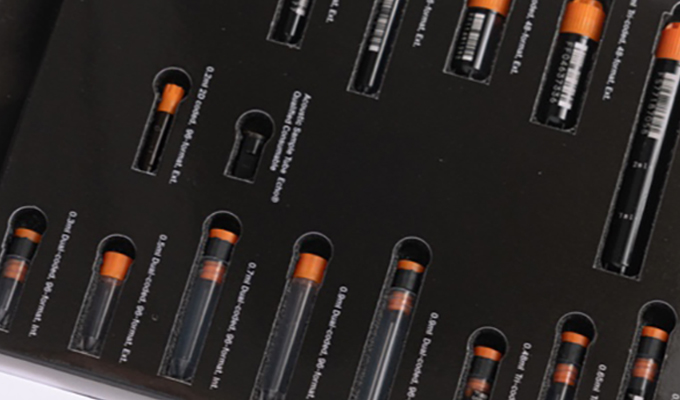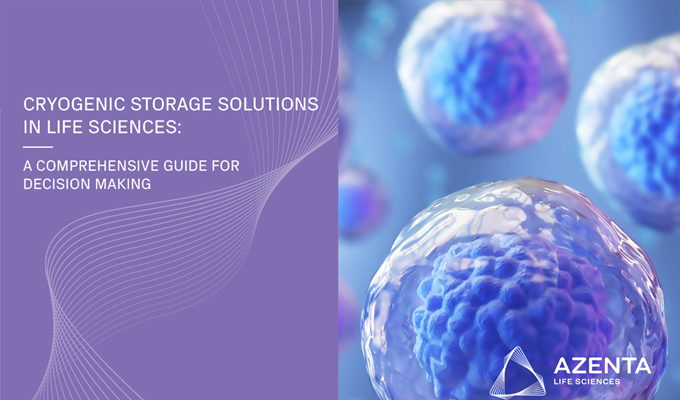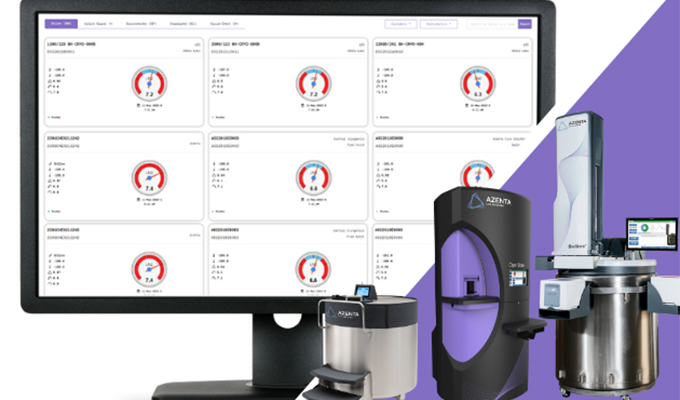Insights from our December 2024 Bridging the Gap Webinar
Groundbreaking advancements in cell and gene therapies offer unprecedented hope for patients battling cancers, autoimmune diseases, and genetic disorders. Yet, transforming academic breakthroughs into therapies ready for patients is a complex and challenging journey. Issues such as scalable manufacturing processes, navigating diverse regulatory frameworks, and expanding access to underserved communities remain significant. These hurdles not only delay the delivery of life-saving treatments but also underscore the need for collaboration across academia, industry, and policy-making bodies.
The December 2024 Bridging the Gap webinar series, hosted by Azenta Life Sciences and the Emily Whitehead Foundation, tackled these pressing issues. Titled “From Academia to Commercialization: Developments in Next-Gen Cell Therapies,” the session featured Brent Rice, M.B.A., Senior Vice President and Chief Commercial Officer at Autolus, alongside the series hosts and panelists. Together, they explored the critical innovations, challenges, and strategies required to bring cell therapies to patients.
From Academic Breakthroughs to Commercial Milestones
The transition from academic discovery to commercial product often defines the success or stagnation of new therapies. Autolus, a company founded in 2014, exemplifies how academic research can spark life-saving innovations. Dr. Martin Pule, M.D., now Autolus’s Chief Scientific Officer, launched the company as a spin-out from University College London (UCL) with support from UK-based venture capitalist Syncona. Autolus has since become a leader in the development of next-generation CAR-T therapies.
Reflecting on Autolus’s origins, Rice noted, “Our science begins at UCL. The innovations born out of academia are essential for advancing the cell therapy field.”
Autolus’s partnership with UCL illustrates how collaborations between academia and industry are pivotal for early-stage innovation. The company’s relationship with CGT Catapult, a UK-based manufacturing innovation hub, further highlights the role of strategic partnerships. Rice explained, “The CGT Catapult collaboration allowed us to scale our GMP manufacturing processes. These partnerships are critical to ensuring therapies are scalable and accessible.”
A Breakthrough with Aucatzyl
Autolus recently celebrated a significant achievement: FDA approval of Aucatzyl, a CD19-directed genetically modified autologous T-cell immunotherapy for adults with relapsed or refractory B-cell precursor acute lymphoblastic leukemia (ALL). This milestone reflects years of research and refinement, culminating in a therapy that addresses unmet patient needs while advancing industry standards.
Most notably, Aucatzyl is the first CAR-T therapy approved without requiring a Risk Evaluation and Mitigation Strategies (REMS) program. According to Rice, the elimination of REMS underscores the progress in reducing the toxicities associated with CAR-T treatments:
“We’re incredibly proud that Aucatzyl is the first CAR-T therapy approved without REMS. It’s a testament to the safety and innovation of the product.”
Without the administrative burden of REMS, hospitals can more readily adopt the therapy, expanding access to more patients. Panelist Dr. Patrick Hanley of Children’s National Hospital, added:
“Reducing REMS requirements is a huge leap forward. It not only lowers barriers for hospitals but also improves access for patients in need.”
Scaling Access Beyond Academic Centers
Despite these advancements, the commercialization of cell therapies faces ongoing challenges, particularly in scaling access to diverse patient populations. Many therapies are confined to major academic centers, leaving rural and underserved communities with limited options.
Rice emphasized the need to expand treatment availability. “We need to go where patients reside,” he said. “This means not just academic hospitals but community care settings as well.”
Innovations like tumor burden-guided dosing and first-in-class binders are making CAR-T therapies safer and more scalable. Such advancements could enable broader adoption in outpatient and community settings, particularly for indications with less intensive management needs.
Harmonizing Global Regulatory Standards
The lack of harmonized regulatory standards across countries was another key issue discussed. For therapies to reach global markets efficiently, regulators must align their expectations for trial design, evidence generation, and approval criteria.
Rice explained, “Every regulatory agency has its own expectations for trial endpoints and criteria. This creates delays and inefficiencies that ultimately affect patient access.”
This fragmentation becomes even more pronounced in cross-border scenarios, such as when European Union countries negotiate reimbursement for therapies administered outside their borders. A unified approach could streamline approvals and accelerate patient access.
Advancing Therapies to Earlier Treatment Lines
The potential to move CAR-T therapies to earlier lines of treatment is a promising yet complex challenge. Currently, most therapies are reserved for patients who have exhausted other options, leaving their immune systems compromised. Administering these treatments earlier in the patient journey could improve outcomes by leveraging healthier T cells.
Rice stated, “Patients benefit when these therapies are delivered earlier. Their immune systems are stronger, and the outcomes are often more favorable.”
Panelist Albert Ribickas from Moffitt Cancer Center added, “The industry has made incredible strides over the past seven years, but we still have work to do in building the infrastructure to make earlier interventions feasible.”
A Patient-Centered Approach
Throughout the webinar, the panel emphasized the importance of centering patients in the development and commercialization process. Rice shared Autolus’s patient-centric approach: “We incorporate patient feedback at every stage, from trial design to commercialization. Understanding their journey helps us design better therapies and support systems.”
George Eastwood from the Emily Whitehead Foundation highlighted the role of advocacy groups in bridging gaps between stakeholders:
“Nonprofits, regulators, and pharma must collaborate to shape policies that prioritize patients. Together, we can address barriers to access and advance the field.”
Key Takeaways from the Webinar
- Academic-Industry Collaboration: Partnerships like those between Autolus, UCL, and CGT Catapult are vital for advancing cell therapies.
- Regulatory Harmonization: Aligning global standards is essential for accelerating approvals and improving access.
- Scalability and Infrastructure: Expanding therapies to community settings requires investments in infrastructure and training.
- Early-Line Intervention: Moving CAR-T therapies earlier in the treatment paradigm could improve patient outcomes.
- Patient-Centric Innovation: Incorporating patient feedback is crucial for designing therapies that truly meet their needs.
Looking to the Future
Autolus is expanding its pipeline to address both oncology and autoimmune diseases. The company’s bisistronic and trisistronic CARs target multiple antigens, offering promising options for complex cancers like acute myeloid leukemia and multiple myeloma. Autolus is also exploring applications in autoimmune diseases, with a focus on conditions like lupus nephritis.
“We believe the data supports the potential for CAR-T therapies in autoimmune diseases. These patients need solutions, and we’re committed to delivering them,” said Rice.
This edition of the Bridging the Gap webinar series illuminated the challenges and opportunities in commercializing next-generation cell therapies. While significant strides have been made, the journey from academic discovery to patient impact is far from over. By fostering collaboration across sectors and prioritizing patient needs, these life-saving therapies can reach their full potential. To explore these insights further, watch the full webinar recording available on our website.
Stay Updated
Register to watch the latest session on-demand and receive an invitation to the next live webinar tackling important topics in cell and gene therapy.
About the Guest Speaker
Brent Rice
SVP, Chief Commercial Officer and Managing Director US, Autolus

Brent Rice is the SVP, Chief Commercial Officer, and Managing Director US at Autolus, bringing over 25 years of leadership in biotech and pharmaceuticals. With expertise in sales, marketing, operations, and reimbursement, he excels at building scalable commercial organizations, leading product launches, and negotiating high-value agreements that improve patient access. Prior to Autolus, Brent led Managed Markets at Juno Therapeutics, developing payer and reimbursement strategies. He spent 18 years at Amgen, earning recognition for driving innovative partnerships and portfolio success.
Brent also co-founded Building Employee Ownership, a financial services company empowering employees through ESPPs, and served on the board of ACTION, a nonprofit connecting volunteers with community needs. He holds a BA in Russian Studies from UCLA and an MBA from the University of Denver.









